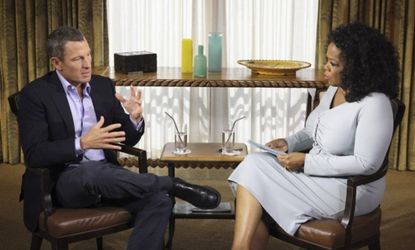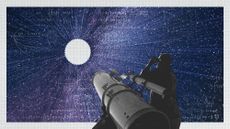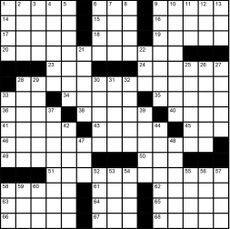5 ways Lance Armstrong flubbed his Oprah confessional
The disgraced cyclist spilled his secrets (not tears) to Oprah Winfrey, but may have botched his public rehabilitation


Perhaps to halt his dizzying fall from grace, cyclist Lance Armstrong sat down with America's de facto confessor, Oprah Winfrey, for a two-part, no-holds-barred interview, the first part of which aired Thursday night on the Oprah Winfrey Network (OWN). Oprah earned high marks for her tough-but-polite interrogation, getting Armstrong to clearly admit he took a "cocktail" of banned performance-enhancing drugs to win his big races, and the interview was a rare ratings win for her struggling cable network — the query "what channel is OWN" reportedly spiked on Google Thursday evening. But Armstrong's performance didn't exactly placate his critics. And with Armstrong, everyone is a critic. Here, five ways he botched his big national shot at the beginning of redemption.
1. Armstrong flunked the sincerity test
After watching Lance come clean — "Kinda. Sorta" — to Oprah, and the world, "I feel sad," says Kirk Bohls at the Austin American-Statesman. How does Armstrong feel? Who knows? He "came off as cold and calculating," lacking in sincerity, "glib at inappropriate times, downright evasive at others," and in general seemed "as much a machine as the bicycle he rode for so long." Apparently, "Armstrong treated his confession with Winfrey as yet another competition," but he "didn't come close to the yellow jersey" this time.
Subscribe to The Week
Escape your echo chamber. Get the facts behind the news, plus analysis from multiple perspectives.

Sign up for The Week's Free Newsletters
From our morning news briefing to a weekly Good News Newsletter, get the best of The Week delivered directly to your inbox.
From our morning news briefing to a weekly Good News Newsletter, get the best of The Week delivered directly to your inbox.
Armstrong was looking for more than forgiveness, though — he wants to return to competing in triathlons and other sports he's banned from now, and "anti-doping rules permit officials to ease penalties for athletes who display contrition and offer substantial cooperation," say Christian Red and Michael O'Keeffe at the New York Daily News. Unfortunately for Lance, "his guarded and unpersuasive performance is unlikely to convince officials to rescind his lifetime ban from sports."
2. He was weaselly with the word "cheat"
Armstrong confessed to using the performance-enhancing drug EPO, testosterone, and blood transfusions to win his seven Tour de France races — in fact, he said he couldn't have won without them — but he said he didn't consider it cheating. He admitted that this lack of awareness and remorse was the "scariest" part of his doping days, but then he tried to explain it away:
I had this exercise because I kept hearing I'm a drug cheat. I'm a cheat. I'm a cheater.... And I went in and just looked up the definition of cheat.... And the definition of cheat is to gain an advantage on a rival or foe that they don't have. I didn't view it that way. I viewed it as a level playing field.
And as for the "level playing field" claim, says Robert Mackey at The New York Times, a former teammate has said that "Armstrong was dedicated to doping in more sophisticated ways than his rivals and made sure to sign exclusive deals with the best doping doctors in the sport."
Sign up for Today's Best Articles in your inbox
A free daily email with the biggest news stories of the day – and the best features from TheWeek.com
3. He said, implausibly, that he stopped doping in 2005
While Armstrong acknowledged that he had doped his way to his seven Tour de France victories, he insisted that he quit cold turkey after his last win, in 2005, and was clean during his 2009-10 comeback. That raised some skeptical eyebrows.
His claim about a clean comeback "is a direct attack on the credibility of the USADA [U.S. Anti-Doping Agency] report, which maintains that blood samples from those years indeed suggest he continued to use banned substances," note Red and O'Keeffe at the Daily News. And it also makes one wonder why he continued to give payments to his trainer, "Michele Ferrari, the Italian sports doctor who famously said taking EPO was as safe as drinking orange juice?" says Juliet Macur at The New York Times.
Not everyone thinks he's lying about this one, though:
Even if Armstrong's "hard-to-believe claim is true, it is a sad revelation for cycling fans," says Josh Voorhees at Slate. It would mean that a 37-year-old, drug-free Lance came in third in the Tour de France ahead of "at least a handful of other elite cyclists who themselves were later found to have doped — an alleged accomplishment that would raise further questions about his claim that he needed to use PEDs in his prime in order to compete in a culture of doping." Regardless,
4. He refused to believably apologize to the people he bullied
Many of the people who tuned in Thursday night were not waiting to hear "an admission of doping — that was stipulated from the start — but a specific apology for the lives he ruined in order to keep his secret a secret," says David Carr at The New York Times. They didn't get that. He said he'd tried to reach out to Emma O'Reilly, a former team masseuse he called a prostitute and alcoholic after she suggested he used banned substances, and former best friend Frankie Andreu and his wife, Betsy. But he made an awkward joke about how he'd called Betsy Andreu "crazy" but never "fat," and when Oprah pointed out that he sued O'Reilly, Armstrong said, "To be honest, Oprah, we sued so many people... I'm sure we did." More than the doping, what people in the cycling community hate about Armstrong is "his willingness to destroy others to protect himself."
Armstrong did acknowledge "being a bully, but he has yet to say he was sorry to most of the people he victimized," says Carr. "Perhaps that is something that will be dealt with in the second part of the interview," airing on Friday. Of course he owes the people he defamed and sued an apology, says The Times' Macur, but Armstrong also "failed to apologize directly to all the people who believed in him, all the cancer survivors and cycling fans who thought his fairy-tale story was true."
5. Armstrong opened himself up to costly lawsuits
The legal rumbling has already started — SCA Promotions says it will sue Armstrong if he doesn't pay them back a $12 million bonus from his 2004 Tour de France win — and there are plenty of defamation suits looming on the horizon, law professor Geoffrey Rapp tells Reuters. "He wronged these people. Some of them may have hesitated to go after him when he was denying it and had the resources to defend the lawsuit," but now they'll pounce, and Armstrong will probably settle out of court. "There are lawyers across the country representing various interests who are recording that interview," former federal prosecutor Matt Orwig tells Reuters. "From a legal perspective, his issues are becoming more difficult, not less." Yes, "supposedly he has a hundred million dollars," says CNN legal analyst Jeffrey Toobin. "He's going to have a lot less than a hundred million dollars when this is all over."
Still, not everyone was so down on Armstrong:
"I think he was clear, straight-forward, uncomfortable because who would be comfortable," anti-doping scientist Don Catlin tells USA Today. "He's not going to satisfy USADA and WADA [World Anti-Doping Agency], but he did what he had to do. He said he was a bully.... For an hour-and-a-half, he took it." He also admitted he is a "jerk and humanitarian," an "arrogant prick," a jerk, and other relatively self-aware assessments, says Macur at The New York Times. "That takes some guts to say to millions of people tuning in." And, let's admit it, he provided 90 minutes of good TV.
Create an account with the same email registered to your subscription to unlock access.
Peter has worked as a news and culture writer and editor at The Week since the site's launch in 2008. He covers politics, world affairs, religion and cultural currents. His journalism career began as a copy editor at a financial newswire and has included editorial positions at The New York Times Magazine, Facts on File, and Oregon State University.
-
 The hunt for Planet Nine
The hunt for Planet NineUnder The Radar Researchers seeking the elusive Earth-like planet beyond Neptune are narrowing down their search
By Chas Newkey-Burden, The Week UK Published
-
 Magazine interactive crossword - April 26, 2024
Magazine interactive crossword - April 26, 2024Puzzles and Quizzes Issue - April 26, 2024
By The Week US Published
-
 Magazine solutions - April 26, 2024
Magazine solutions - April 26, 2024Puzzles and Quizzes Issue - April 26, 2024
By The Week US Published